
UC Davis Researchers Seeking Appaloosas for Clinical Trial
The researchers are conducting a clinical trial on equine recurrent uveitis in Appaloosas.

The researchers are conducting a clinical trial on equine recurrent uveitis in Appaloosas.

Monday’s 6 a.m. Sunrise Session on uveitis came a little early for our sleep-starved veterinary reporter.
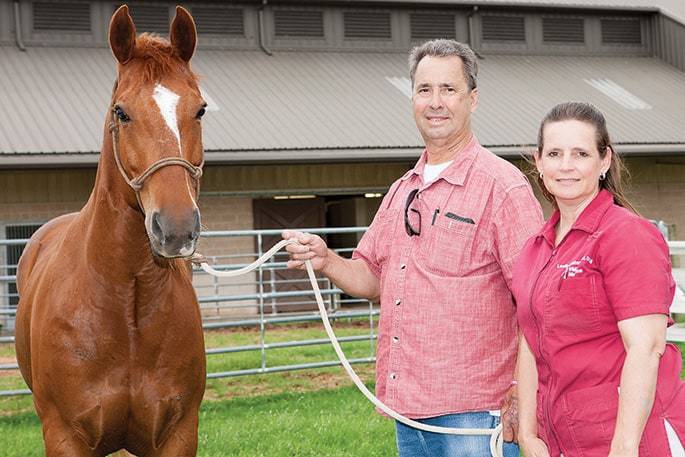
Read about how a gelding overcame a serious eye problem and formed a bond with a 10-year-old girl.
The USDA-approved vaccine prevents the disease responsible for foal abortion, kidney and liver failure, and uveitis.

The region in which a horse lives, his surroundings, and more can put him at risk for developing these eye abscesses.

Ophthalmologist Catherine Nunnery, DVM, will present “Equine Vision: What Does My Horse See?” on Sept. 8.

Lavage systems placed in the upper and lower eyelids developed complications 12.8% and 22.2% of the time, respectively.
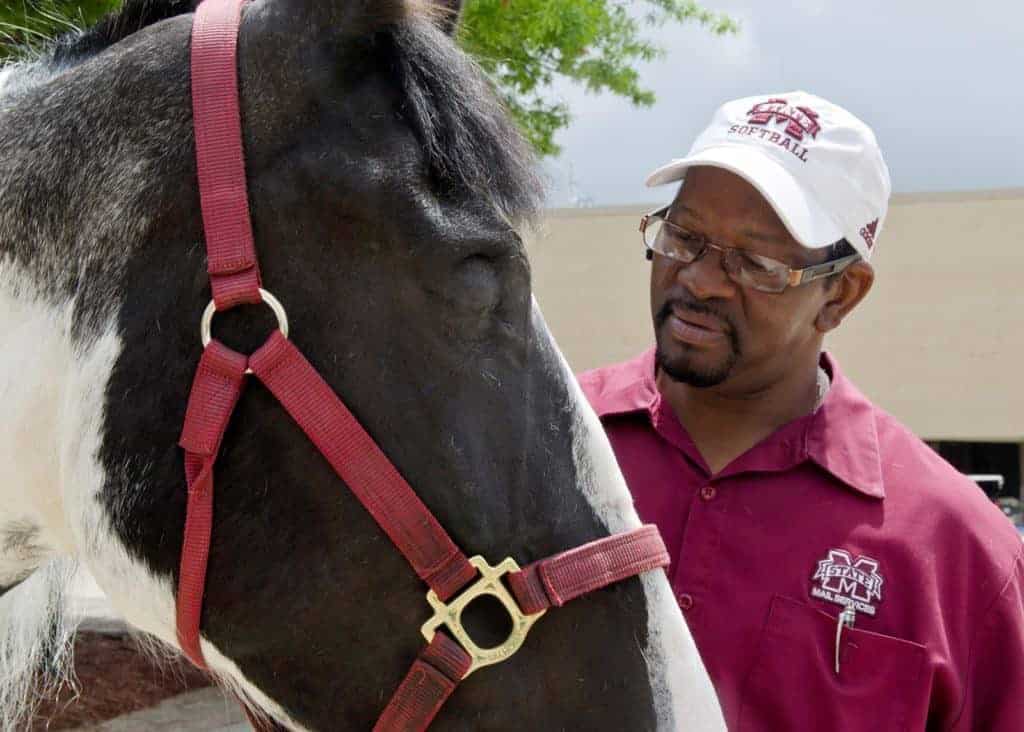
The procedure is designed to minimize surgical stress and complications associated with enucleations.
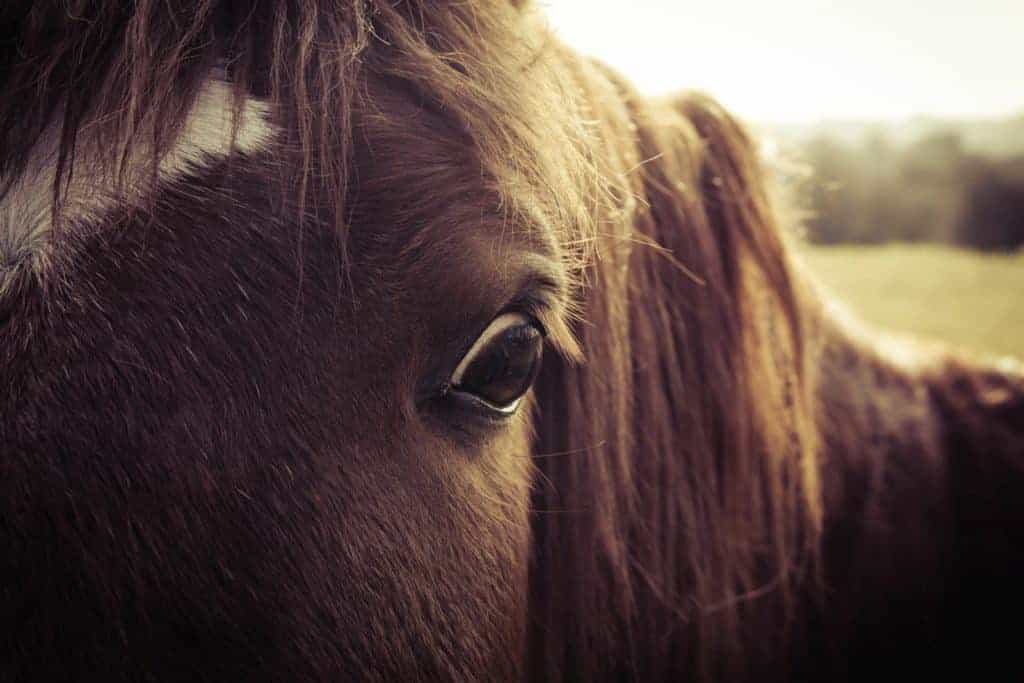
Study topics include keratitis, corneal surgery, corneal neoplasia, uveitis, glaucoma, and more.

Many conditions common to foals can contribute to or cause auditory dysfunction. Here’s what to watch for.

A horse’s coat color genetics are important not just for aesthetic reasons; they can also have health implications.
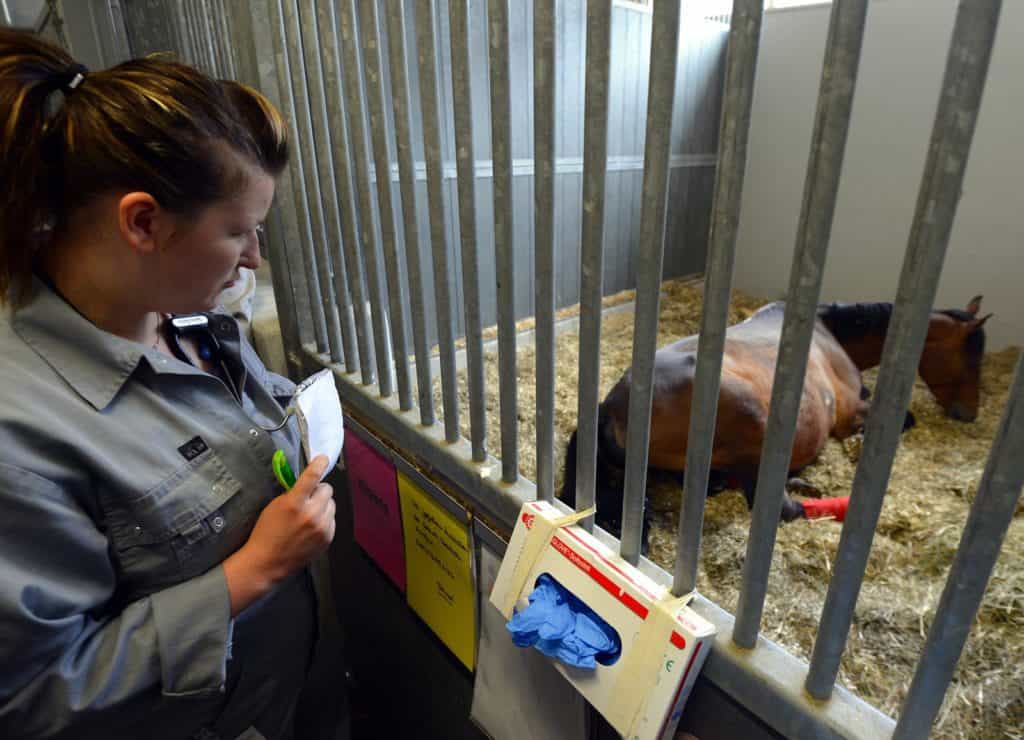
In the researchers’ clinic colic incidence among each group of patients was not significantly different.
Topics will include lower-limb lameness, ophthalmology, ambulatory practice, and poor performance.

Researchers determined that administering subconjunctival allogeneic stem cell injections to horses appears safe.
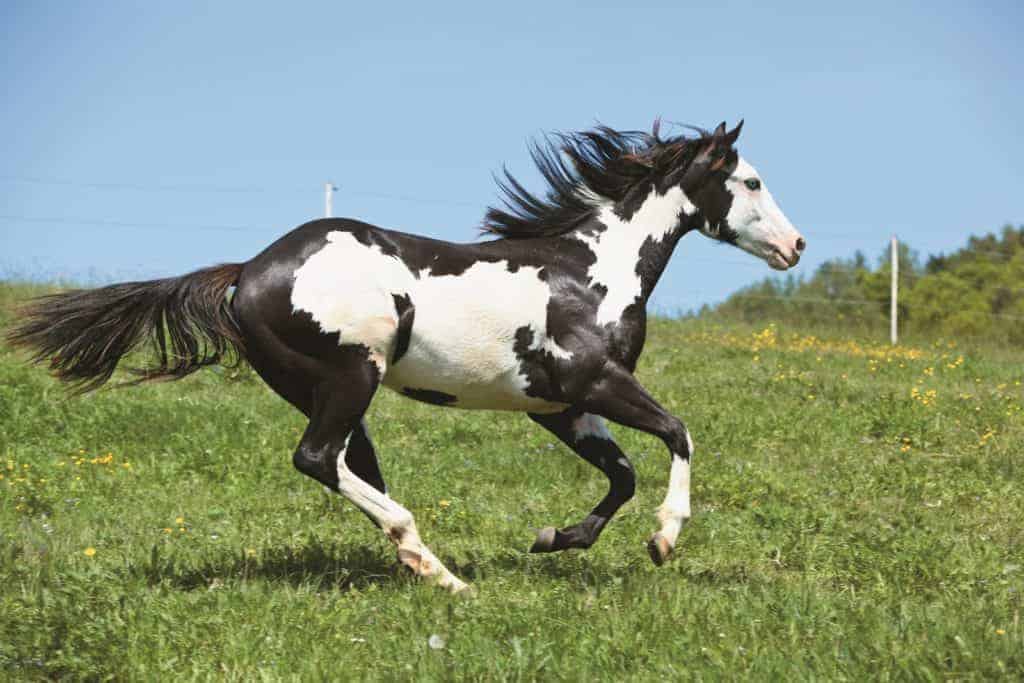
By knowing what conditions certain horses are predisposed to, owners and breeders can take preventive steps.
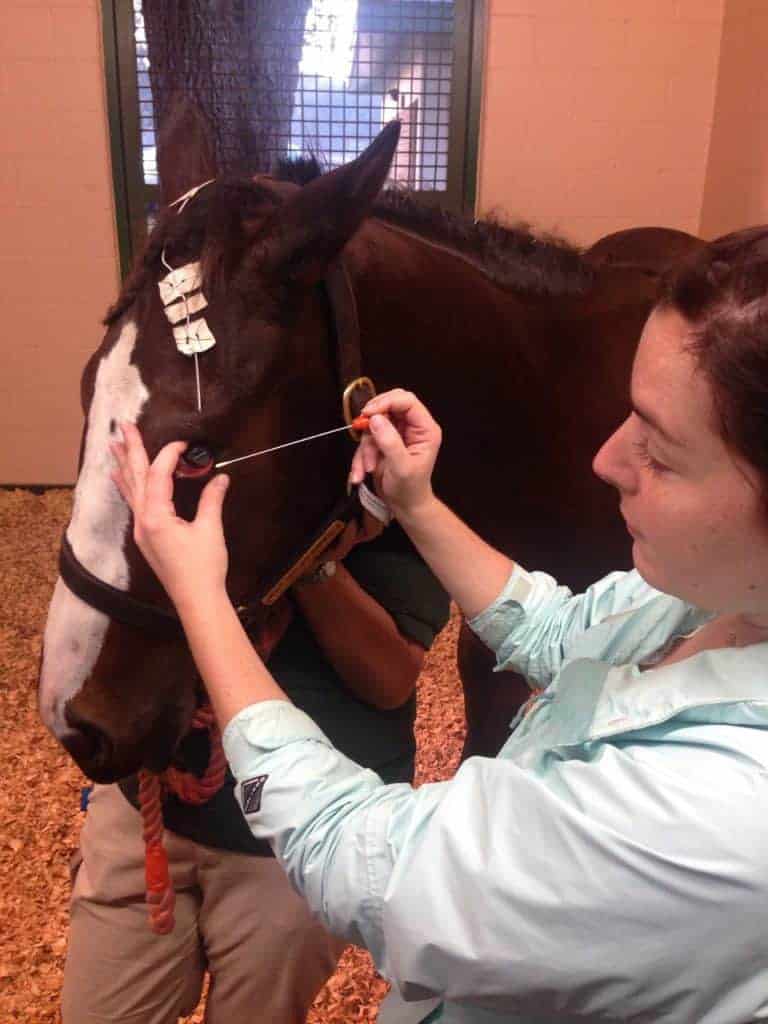
Because ocular problems are prevalent in foals, a veterinarian should examine a neonate’s eyes within 36 hours of birth.
Stay on top of the most recent Horse Health news with
"*" indicates required fields